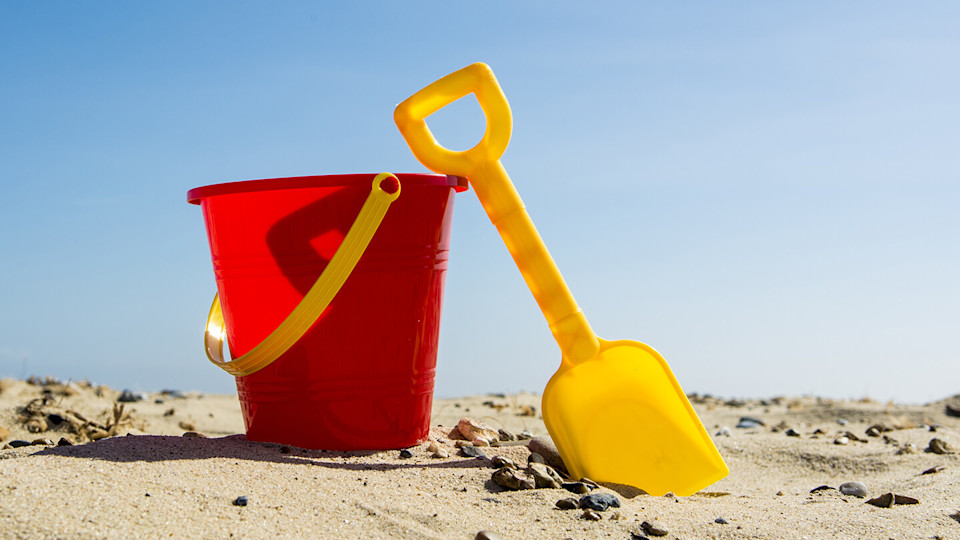Our family law experts discuss splitting school holidays for separated parents, and when you need to seek consent to take your child on holiday.

Family
Do I need permission to take my child on holiday abroad?
We discuss when you need permission to take your child on holiday and offer expert advice on what to do if the child’s other parent refuses to agree to the holiday.
As the weather grows warmer and holiday season approaches, our family law experts know that many separated parents will be wanting to make the most of the period and take their children on holiday.
Still, where there’s no Child Arrangement Order in place outlining who the children are to spend time with, or the other parent refuses to consent to the holiday, many separated parents can be left feeling lost and wondering where to turn. Here, we explain your rights when it comes to taking your children on holiday, and what you can do if you’re struggling to reach an agreement with your ex-partner.
What consent do I need to take my child abroad?
If you’re planning on taking your kids abroad this summer, your legal positioning to do so depends on your family’s circumstances regarding parental responsibility. Parental responsibility is a legal concept that includes the rights, duties, and obligations a parent has to a child, and mothers automatically have this responsibility at birth.
If the parents are married or in a civil partnership when the child’s born, both parents will have this automatic parental responsibility. This also applies to a person who adopts or becomes a legal guardian of the child. For births registered after 1st December 2003, provided a father's name is on the birth certificate, unmarried fathers also have automatic parental responsibility.
If both parents have parental responsibility, and there is no Court Orders in place, neither parent can take their child out of the country without written permission from the other parent. The permission letter also needs to include the other parent’s contact details and details about the trip.
This is the case for holidays outside of the country only. Provided that you have parental responsibility, and there is no Court Order in place stating otherwise, you don’t need permission to take your child on holiday within England and Wales.
Still, if a holiday within this country doesn’t fit within your agreed child-care schedule, you’ll need consent from the child’s other parent to change this schedule. If they refuse to agree to this without good reason, you can then apply for a Court Order in Children Act Proceedings, called a Specific Issue Order, where the Court will determine whether or not the holiday is in the best interests of the child.
Whilst this may require further efforts in the process of taking your own child on holiday, failing to gain permission where legally required can be considered child abduction.
Can one parent take a child out of the country without permission?
If you have a Child Arrangement Order in place stating that your children are to live with you, you’re able to take them out of the jurisdiction for up to 28 days without the permission of the other parent. If the court order states that the child lives with both separated parents, then both parents have this right.
Where there is no Court Order currently in place, and both parents have parental responsibility, neither parent can take the child outside of England and Wales without written consent from the other. You’ll have to provide details of the holiday in advance, such as the set dates, the address at which the child will be staying, flight information, and contact telephone numbers on which the child can be reached by the other parent during the holiday. If you’re seeking to take your child abroad, and the necessary consent is being unreasonably withheld by the other parent, then further action can be taken.
Usually, where an agreement can be reached between separated parents with successful co-parenting, through family mediation or with the help of a family solicitors, then further legal action by the way of an application to the court isn’t necessary. Still, where these amicable approaches aren’t successful, and a court application is required, permission for the holiday will need to be granted by the court, based on whether the holiday is deemed to be in the children.
What are consent letters?
If you’re looking to obtain consent to take your child on holiday, you might be wondering the best way to go about this. The key to negotiating well with your child’s other parent is communication. It’s best to begin conversations as early on as possible, ideally well before the holiday is booked or arranged. This allows the other parent to feel they’re being considered, and that their opinion is being listened to.
You should also be prepared to be completely open with the other parent regarding the details of the holiday, and work with them in terms of communication arrangements for while the children are away with you. Making the other parent feel involved in this way makes it more likely that they will consent to the holiday taking place.
When you have their permission, it’s important to get proof of the consent in writing, as this can also prevent delays at border control when traveling with your child.
What if my ex denies me permission to take my children on holiday?
If you’ve tried to reach an amicable agreement with your child’s other parent and they still haven’t provided the necessary consent for the holiday, you then have the option to seek independent legal advice and ask the court for permission as a last resort.
Generally speaking, family holidays are considered positive experiences for children, and the court will usually grant you permission. If the other parent’s causing unnecessary delays, and is refusing to consent with no good reason, a Specific Issue Order can be made with the court. This allows the court to decide on a particular issue that the separated parents aren’t able to agree on, such as a holiday.
How Slater and Gordon can help
At Slater and Gordon, our award-winning family law team has the sensitivity and expertise to guide you through your difficult family disputes and disagreements.
If you’d like help or advice in reaching an agreement for child arrangements, or any other aspect of children’s law, speak to one of our family law experts today by calling 0330 041 5869 or contact us online.




Parental responsibility determines who has overall responsibility for the care and wellbeing of a child. However, while it may seem straightforward, the issue of who has parental responsibility can be more complicated than you think. Talk to us to understand your parental rights.